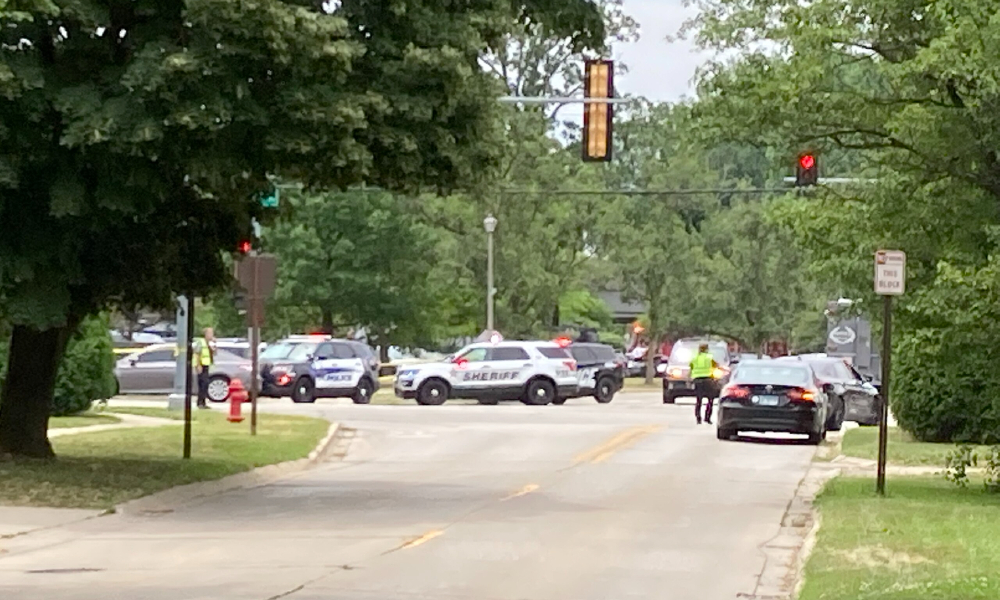DHS’s Modest Social Media Proposal Deserves Support
According to a coalition of advocacy groups, a new proposal by DHS to seek information about the online presence of individuals trying to enter the United States from Visa Waiver countries—directly and voluntarily from those individuals—would “invade individual privacy and imperil freedom of expression.” The alarmist rhetoric used in responding to this proposals belies a far less dramatic reality.
Published by The Lawfare Institute
in Cooperation With

According to a coalition of advocacy groups, a new proposal by DHS to seek information about the online presence of individuals trying to enter the United States from Visa Waiver countries—directly and voluntarily from those individuals—would “invade individual privacy and imperil freedom of expression.” The alarmist rhetoric used in responding to this proposals belies a far less dramatic reality. This is a relatively modest proposal to obtain potentially valuable information through the least intrusive means possible, by seeking it directly and voluntarily from the source. We know terrorists are using social media to recruit and radicalize. If the government is asking for the voluntary production of information to help identify and stop would-be terrorists at the border, we should support it.
In June, DHS proposed a change to the form travelers from Visa Waiver countries fill out when seeking entry into the United States. The change would ask individuals to voluntarily provide information about their online presence, including names used on social media sites.
Increasingly, extremists of various identities are relying on social media to propagate hateful ideologies and to encourage violence. On an almost weekly basis, innocent lives are cut short by senseless acts of violence carried out in malls, in airports, in nightclubs, and on civilian-lined streets. The violence of many of these acts is nurtured online, as extremists worldwide share their intolerant ideologies and inspire one another to kill. Real-world threats are often inspired and plotted in the virtual one. So identifying associations between people in the virtual as well as the physical world is valuable to efforts to prevent attacks.
A fundamental critique is that no individual would volunteer actually incriminating information. But you might be surprised at the richness of information that individuals often volunteer. In the traditional criminal context, by way of analogy, individuals frequently consent to police searches of their homes or automobiles, only to result in the discovery of drugs or other evidence of a crime. In the aftermath of attacks, the government is often accused of negligence for failing to consider social media presence: following the San Bernardino shootings, for example, questions quickly arose regarding what was known about the social media use of shooter Tashfeen Malik.
And there are benefits from having individuals with no connection to terrorism or criminal activity self-identify their online presence. It reduces occurrences of misidentification. It provides access to materials to help corroborate and verify other reported information. Properly used, the identifiers help immigration officers do their jobs more quickly and efficiently, freeing up resources to focus on genuine threats. And, as the San Bernardino case demonstrates, even where identifiers likely would not have been sufficient to screen out a dangerous individual, they can provide important leads in the high-stakes investigations which take place in the immediate aftermath of successful attacks.
Put simply, it is perfectly reasonable to believe this information could help the government identify would-be terrorists before they disappear within our borders and plot and carry out deadly terrorist attacks. And the voluntary nature of the request limits the degree of individual intrusion. Yet, to a coalition of privacy groups, this proposed change is nevertheless completely unacceptable. Beyond passing reference to the “security concerns that motivate this proposal,” these groups do not offer alternatives to address those legitimate concerns in a less intrusive fashion.
Many of the groups in this privacy coalition have also been highly critical of government surveillance and use of confidential sources, which are two of the more involved ways in which the government seeks information to advance its counterterrorism mission. Their outright rejection of DHS’s far more modest proposal to ask people a simple question (with no compulsion to provide an answer) raises the specter that their objections are not genuinely rooted to properly constrained applications that effectively balance privacy and security interests, but instead reveal a dogmatic resistance to any government program designed to collect information.
If the goal here is something beyond pure obstructionism, then we should be having a conversation about how to achieve security goals in the most privacy-protective manner possible. If this proposal fails to satisfy the test, then what should the alternative be? What more-acceptable mechanisms exist to access this information? If the answer is none—and I’m at a loss for a solution less invasive than a voluntary request—then it would appear the expectation is that the government should outright ignore the social media presence of individuals seeking to enter the United States.
Following an attack on US soil, the government is called to account for whether they have done all that they reasonably could have in order to prevent it. In that harsh light—which is becoming all too common as attacks increase—most people consider it unacceptable if the government has failed to undertake modest, common-sense efforts. Often those failures lead to harsher, more invasive policies being implemented. So when DHS offers a truly modest plan, it serves us all to either support it or offer a better idea.





